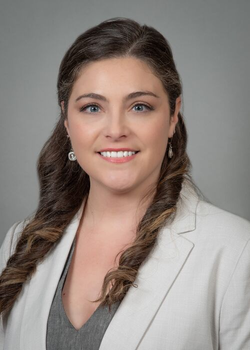2q37 Deletion Syndrome Overview
Learn About 2q37 Deletion Syndrome
2q37 deletion syndrome is a condition that can affect many parts of the body. Most babies with 2q37 deletion syndrome are born with weak muscle tone (hypotonia), which usually improves with age. Other neurological abnormalities that are common in affected individuals include mild to severe intellectual disability; delayed development of motor skills, such as sitting and walking; and behavioral problems. About 25 percent of people with this condition have autism spectrum disorder, a developmental condition that affects communication and social interaction.
2q37 deletion syndrome is caused by deletions of genetic material from a specific region in the long (q) arm of chromosome 2. The deletions occur near the end of the chromosome at a location designated 2q37. The size of the deletion varies among affected individuals, with most affected people missing 2 million to 9 million DNA building blocks (also written as 2 Mb to 9 Mb).
2q37 deletion syndrome appears to be a rare condition, although its exact prevalence is unknown. At least 115 cases have been reported worldwide.
Most cases of 2q37 deletion syndrome are not inherited. They result from a chromosomal deletion that occurs as a random event during the formation of reproductive cells (eggs or sperm) or in early fetal development. Affected people typically have no history of the disorder in their family.
Advocate Heart Institute
Sunil Pauwaa is an Advanced Heart Failure and Transplant Cardiologist in Oak Lawn, Illinois. Dr. Pauwaa is rated as an Experienced provider by MediFind in the treatment of 2q37 Deletion Syndrome. His top areas of expertise are Heart Failure, Pulmonary Veno-Occlusive Disease, Pulmonary Hypertension, Heart Transplant, and Lung Transplant.
Wk Hematology Oncology Associates
Joyce Feagin is a Hematologist Oncology specialist and a Hematologist in Shreveport, Louisiana. Dr. Feagin is rated as an Advanced provider by MediFind in the treatment of 2q37 Deletion Syndrome. Her top areas of expertise are Inflammatory Breast Cancer, Colorectal Cancer, Familial Colorectal Cancer, and Paget Disease of the Breast. Dr. Feagin is currently accepting new patients.
Erica Fernandes is a Medical Genetics specialist and a Pediatrics provider in New Hyde Park, New York. Dr. Fernandes is rated as an Advanced provider by MediFind in the treatment of 2q37 Deletion Syndrome. Her top areas of expertise are Microcephaly, Chromosome 13q Deletion, Scalp-Ear-Nipple Syndrome, and Snyder-Robinson Syndrome.
Published Date: October 01, 2018
Published By: National Institutes of Health

